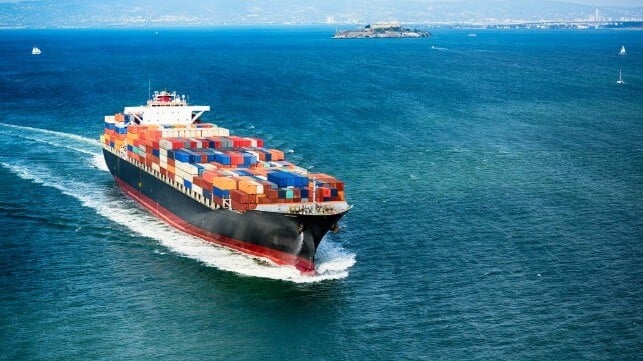The average delay for delayed containerships has seen a continuous increase in 2024, reaching the highest levels since the pandemic's peak and the surge in container volumes. Sea-Intelligence's monthly report on the average performance of container shipping carriers across 34 trade routes indicates that the industry is still broadly affected by the disruptions of 2024.

"Although schedule reliability in 2024 has stabilized between 50 to 55 percent, it has been on a slight decline since its peak in May," said Alan Murphy, CEO of Sea-Intelligence. He does note, however, that "the low volatility in schedule reliability this year provides shippers with a relatively accurate forecast of what to expect from month to month."
Overall, the industry's schedule reliability dropped by another 1.2 percentage points in September to 51.4 percent. This marks the lowest point of the year and the lowest industry level in 24 months. After a dismal start in 2021 with only one in three ships on schedule, the industry surpassed the 50 percent mark in October 2022, reaching as high as 64 percent in mid-2023. The declines resumed in December 2023 as the Houthis began disrupting containership schedules through the Red Sea.
Comparing the current performance with 2019, before the pandemic, volume surges, and now the Red Sea diversions, containerships achieved a schedule reliability of 80 percent. Maersk and Hapag-Lloyd have set an ambitious goal to reach 90 percent schedule reliability on key routes once they initiate the Gemini Cooperation in 2025.
Maersk maintains its industry-leading position with the best schedule reliability in September 2024 and is one of only four carriers among the top 13 that improved performance between August and September. However, Maersk's reliability is at 55.5 percent, down from 70 percent a year ago. Zim, PIL, and Wan Hai were the other carriers that showed monthly performance improvements.
All top carriers are experiencing a significant year-over-year decline. From an average of 60 percent in September 2023, the largest carriers have dropped 13 percentage points to an average of 47 percent in September 2024. Three carriers (MSC, PIL, and Wan Hai) each declined by over 20 percentage points year-over-year, according to Sea-Intelligence. The average year-over-year decline is 13 percentage points, with a 2.5 percent point average decline in September 2024 compared to the previous month.
While schedule reliability has remained within a narrow range for 2024, Sea-Intelligence highlights that the September 2024 average delay is "the third-highest figure for the month, only exceeded by the pandemic peaks of 2021-2022."
The average delay in September increased by an additional 0.21 days, reports Sea-Intelligence. They calculate that the average delay for late vessel arrivals is now 5.67 days. The average for 2024 is half a day higher than the 2023 average. Before the rerouting began, vessels had managed to reduce the delay to below five days for late arrivals.
Linerlytica reports that the most consistent level of port congestion remains in Asia. In addition to Chinese ports, Singapore, Hong Kong, and Korea, Linerlytica shows increased levels at Savannah and in Northern Europe's large container ports as of October 31.
With diversions around Africa and winter weather challenges off South Africa, ports and carriers have highlighted issues with vessel bunching at ports. This has led to congestion spikes at individual ports, further exacerbating delays.
Maersk warned the industry last week that it anticipates the disruptions from the Red Sea rerouting to persist well into 2025. The Houthis over the weekend pledged to continue their attacks, with the group's leader reporting that they have targeted over 200 vessels in the past year.
